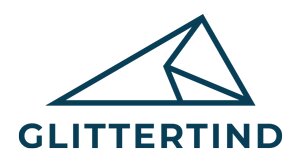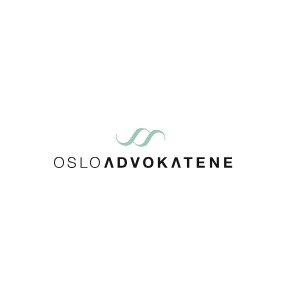Best Renewable & Alternative Energy Lawyers in Oslo
Share your needs with us, get contacted by law firms.
Free. Takes 2 min.
List of the best lawyers in Oslo, Norway
About Renewable & Alternative Energy Law in Oslo, Norway
Oslo, the capital of Norway, is at the forefront of the global move towards clean and sustainable energy. Norway’s focus on reducing carbon emissions and combating climate change has turned Oslo into a hub for innovative renewable and alternative energy projects. Renewable & alternative energy law in Oslo covers the legal frameworks, regulatory requirements, and incentives for using non-fossil fuel sources such as hydropower, wind, solar, bioenergy, and emerging technologies like hydrogen. These laws are designed to promote investment, ensure efficient energy use, protect the environment, and align with both Norwegian and EU policy goals.
Why You May Need a Lawyer
Individuals, businesses, and organizations dealing with renewable and alternative energy in Oslo may encounter a range of legal complexities. Common scenarios where legal help is essential include negotiating investment contracts, securing permits for new energy installations, navigating land use and property rights, handling disputes between stakeholders, understanding regulatory compliance, securing government grants or incentives, protecting intellectual property related to energy technology, and ensuring environmental regulations are met. A specialized lawyer can help clarify your rights and obligations, minimize risks, and streamline your projects for success while staying compliant with relevant laws.
Local Laws Overview
Norwegian energy law is shaped by national legislation, EU rules (through the European Economic Area agreement), and Oslo’s local regulations. Key aspects include the Energy Act, which governs electricity production and distribution, and the Planning and Building Act, which regulates the siting and construction of energy projects. The Pollution Control Act ensures environmental protection during energy production. Oslo has local strategies supporting the development of solar panels on buildings, electric vehicle infrastructure, and energy efficiency initiatives. Permits and concessions from authorities may be required for larger installations. There are also support schemes for renewable energy investments, and strong consumer protection laws ensure fair treatment for residents working with energy providers.
Frequently Asked Questions
What types of renewable energy are most common in Oslo?
Hydropower is the dominant renewable energy source in Norway, while Oslo also supports solar, wind, and bioenergy. Solar power installations are increasingly common in residential and commercial properties.
Do I need a permit to install solar panels on my property in Oslo?
In many cases, small-scale solar panel installations can be done without a permit, but larger or more conspicuous projects may require approval from the municipality according to the Planning and Building Act.
Are there governmental incentives available for renewable energy projects?
Yes, there are national and local incentives, such as grants and tax reductions, for renewable energy installations and energy efficiency improvements, typically administered by Enova or Oslo municipality.
Can I sell excess electricity produced from my solar panels?
Yes, private individuals and businesses can sell surplus electricity to the grid, but agreements must be in place with utility companies and relevant regulations must be followed.
What are my obligations regarding environmental impact?
Energy projects must comply with environmental laws to avoid pollution, protect habitats, and undergo necessary environmental impact assessments, especially for larger developments.
How do I handle disputes with neighbors or authorities about renewable energy projects?
It is advisable to seek legal advice early. Often, disputes can be resolved through mediation, negotiation, or formal complaint processes, but a lawyer can help protect your interests if the issue escalates.
Are there restrictions on wind energy projects in Oslo?
Wind energy projects face strict regulatory requirements, especially regarding land use, noise, and impacts on landscapes and wildlife. Urban wind projects in Oslo are limited due to space and zoning laws.
How are electric vehicle charging stations regulated?
Installation and operation of charging stations are regulated by local planning rules, building codes, and energy safety regulations, with additional support schemes to encourage their expansion.
What role do local Oslo regulations play compared to national laws?
Local regulations complement national laws by setting additional rules for urban planning, building standards, and local sustainability strategies, which can impact project approvals and operational requirements.
Where can I get help with contracts or technology licensing in the renewable sector?
Lawyers specializing in renewable energy can assist with drafting and reviewing contracts, partnership agreements, IP licensing, and due diligence for technology investments or collaborations.
Additional Resources
- Enova SF: A government agency promoting environmentally friendly energy solutions, offering grants and guidance. - Norwegian Water Resources and Energy Directorate (NVE): Regulates energy, concessions, and water resources. - Oslo Municipality: Local body with information about permits, incentives, and sustainability projects. - The Norwegian Ministry of Petroleum and Energy: Sets policy and legal frameworks for energy. - Norway’s Consumer Council: Offers advice and conflict resolution services for consumers dealing with energy providers. - Innovation Norway: Supports businesses and entrepreneurs working on renewable energy projects.
Next Steps
If you are considering a renewable or alternative energy project in Oslo or are facing legal uncertainties, your first step should be to outline your goals and gather all relevant documents. Research local permitting and incentive schemes through municipal offices or agencies like Enova. Contacting a lawyer with experience in energy law will ensure you understand your rights, meet all legal requirements, and minimize risks. Many lawyers offer initial consultations to discuss your situation. Consider working with legal professionals familiar with both Norwegian and EU energy regulations to navigate this complex and rapidly evolving sector effectively.
Lawzana helps you find the best lawyers and law firms in Oslo through a curated and pre-screened list of qualified legal professionals. Our platform offers rankings and detailed profiles of attorneys and law firms, allowing you to compare based on practice areas, including Renewable & Alternative Energy, experience, and client feedback.
Each profile includes a description of the firm's areas of practice, client reviews, team members and partners, year of establishment, spoken languages, office locations, contact information, social media presence, and any published articles or resources. Most firms on our platform speak English and are experienced in both local and international legal matters.
Get a quote from top-rated law firms in Oslo, Norway — quickly, securely, and without unnecessary hassle.
Disclaimer:
The information provided on this page is for general informational purposes only and does not constitute legal advice. While we strive to ensure the accuracy and relevance of the content, legal information may change over time, and interpretations of the law can vary. You should always consult with a qualified legal professional for advice specific to your situation.
We disclaim all liability for actions taken or not taken based on the content of this page. If you believe any information is incorrect or outdated, please contact us, and we will review and update it where appropriate.
















